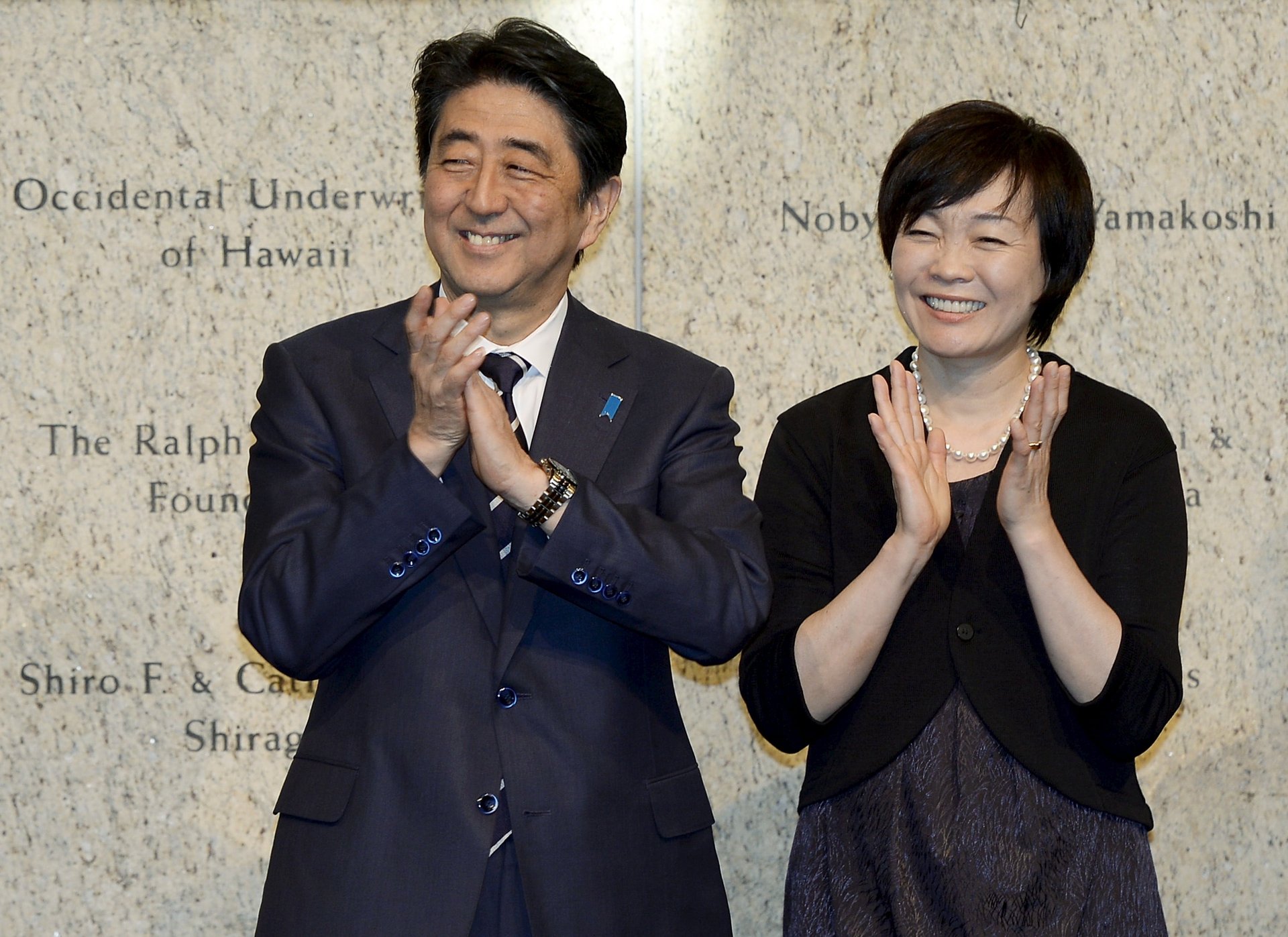The Japanese love it when their first lady criticizes her husband’s policies
Shinzo Abe will be the first sitting Japanese prime minister to visit Pearl Harbor when he makes the trip later this month to commemorate today’s 75th anniversary of the bombing attack.


Shinzo Abe will be the first sitting Japanese prime minister to visit Pearl Harbor when he makes the trip later this month to commemorate today’s 75th anniversary of the bombing attack.
But his wife, Akie Abe, beat him to it when she made a solo trip to Pearl Harbor this summer, where she prayed for those who died there in Japan’s 1941 surprise attack on the US. Some have speculated that the prime minister was influenced by his wife to make the trip himself.
And it’s hardly the first time Akie Abe has been seen as as a likely influence on her 62-year-old husband’s views. In an interview with Bloomberg last week, the 54-year-old described her willingness to challenge the positions and policies of the prime minister and head of the right-leaning Liberal Democratic Party.
“I want to pick up and pass on the views that don’t get through to my husband or his circle,” the first lady said. “That is a bit like an opposition party, I suppose.”
The daughter of a wealthy candy manufacturing magnate and a former radio DJ, Akie Abe has rejected the traditional role of a docile first lady whose influence is limited to hosting state functions and seeing to the interior decor of the official residence.
Akie has openly challenged Shinzo Abe’s support of nuclear power, and of the Trans-Pacific Partnership trade deal. She has also taken up causes of her own, fighting for the adoption of medical marijuana and the revival of domestic hemp farming, and standing up for LGBT rights. Despite tense relations between South Korea and Japan’s Nationalist government, she has made a point of cooking Korean food and discussing her love of Korean culture, including its TV dramas.
When she isn’t running her central Tokyo organic gastropub, Akie Abe is surprising the press with bold political statements. In August, she flew to Okinawa, where she met with protesters who opposed an expansion project at a local US Marine Corps base—one her husband supported.
Her relative rebelliousness doesn’t go unnoticed. Akie Abe uses Facebook to make her views public, and has become known as the “household opposition.” She has found both adoring fans and harsh critics online.
Strikingly, Akie Abe’s assertions of independent views have mostly endeared her to the Japanese public, and they have not hurt the prime minister’s popularity. In fact, analysts have said that she enhances his reputation.
Jun Okumura, a former trade ministry official and current visiting scholar at Meiji Institute of Global Affairs told Bloomberg that the first lady softens the prime minister’s image because it shows voters that ”he can tolerate very different points of view, very different perspectives.”
Last year, Koichi Nakano, a political scientist at Sophia University in Tokyo, told The Washington Post: “I think that without her, he would just come across as someone from a very privileged background and with very strong, right-wing views, just a stubborn conservative.”
Some have questioned Shinzo Abe’s motives for going to Pearl Harbor. His wife’s views, on the other hand, are quite clear. “I think that we have to pass on the memory to the next generation,” she told Japanese reporters, ”transcending the feelings of hate and anger.”